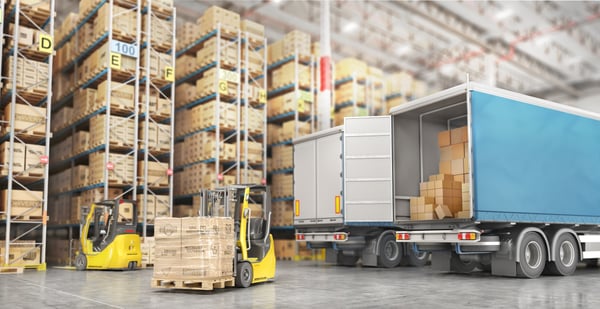
How to Choose the Right Last-Mile Carrier for You
Last-mile logistics is more prevalent than ever, especially during a disruptive period. Learn how to choose the best last-mile carrier to mitigate disruptions in your transportation and overall shipment execution.
The market size of last-mile logistics is expected to reach almost $51 billion in North America by 2022. Expectations for better customer experience is only climbing higher and higher. Essentially, consumers today want fast, trackable shipping at little to no cost.
Most importantly for you to keep in mind, the last mile is often the deal breaker for customers. If the shipment takes too long to deliver or costs too high, they will abandon their online cart. According to a report from Business Insider Intelligence, the cost for last-mile delivery comprises more than half (53%) of the total shipping cost.
It’s your duty to ensure your company can meet those expectations in order to grow and retain your customer base. Overcome last-mile delivery challenges to offer your best to your customers!
Here’s a list of what to look for in the best last-mile carrier:
Provide real-time tracking for visibility.
One of the most important features for last-mile carriers is the real-time visibility of the shipping process. A consumer study in 2019 revealed that 93% of consumers expect visibility into the delivery process – from in-transit status to final arrival date. Without that tracking capability, you won’t retain nearly half (47%) of your customers! If there’s any feature that you need to look for first, it’s the tracking ability to help ease any consumer anxiety.

Believe in a customer-facing service role.
Your last-mile carrier is the last touch point in your shipping process, so it’s crucial that they provide a positive customer experience. While the individual who delivers the package doesn’t work for your company, your customers will associate this person, the shipping company, and the quality of the delivery with your company’s customer service quality.
While looking for last-mile carriers, check their company philosophy to ensure that they offer friendliness and knowledge in addition to their carrier capabilities. They must center their shipment hand-off on your customer’s preference and convenience. Especially during a time like COVID-19, your company should place high importance on accommodating to your customer’s safety and comfort.
Offer a variety of delivery options for customers to choose.
If you’re able to meet a wide range of customer needs, you’ll be able to lock in those ecommerce sales. Limited delivery options will not satisfy your customers and, therefore, your last-mile carrier must offer delivery options. For example, a few options include same-day delivery, expedited delivery requests, and contactless delivery.
Choose a flexible and versatile shipping carrier to satisfy any changes in delivery options to achieve the ultimate customer satisfaction.
Offer a wide delivery coverage.
Last-mile carriers can cover areas as small as a zip code location to the entire country. The carrier network must be large enough to meet the needs of both your business and your customers. It’s also important that the level of service is consistent across different locations regardless if you’re shipping to the east coast or west coast of the U.S. With that in mind, it’s important to familiarize yourself with each carrier’s service area!

Ensure a reliable delivery window.
A high-quality last-mile delivery carrier should offer a reasonable delivery window and be consistent with it to help ensure a positive customer experience. A long delivery period will only cost your business money in the long run.
The above features are some of the important things to consider when you’re choosing a last-mile carrier, but there are optional things you should consider as well! Here are some questions to ask yourself as you’re looking for carriers and/or discussing rates with those carriers:
- Is the carrier rate structure straightforward?
- Does the carrier charge supplemental fees for different features?
- Is the pricing reasonable for the level of service provided by the carrier?
- How do the prices in relation to the services compare with other carriers?
- Does the carrier offer SMS and/or email notifications?
- Does the carrier have an online portal for customers to update their delivery preferences?
- Does the carrier have a return/unwanted delivery policy?
- What are the carrier’s hours of operation? Does the carrier offer delivery on weekends and/or holidays?
If you determine early on that your supply chain requires more than one carrier, consider using a shipping solution like ShipERP to pick and choose carriers that best suits the requirements of your company and your customrs. With ShipERP, you’ll be able to rate shop from a network of 250+ carriers. To make it even easier, you can filter carriers based on features you want!

